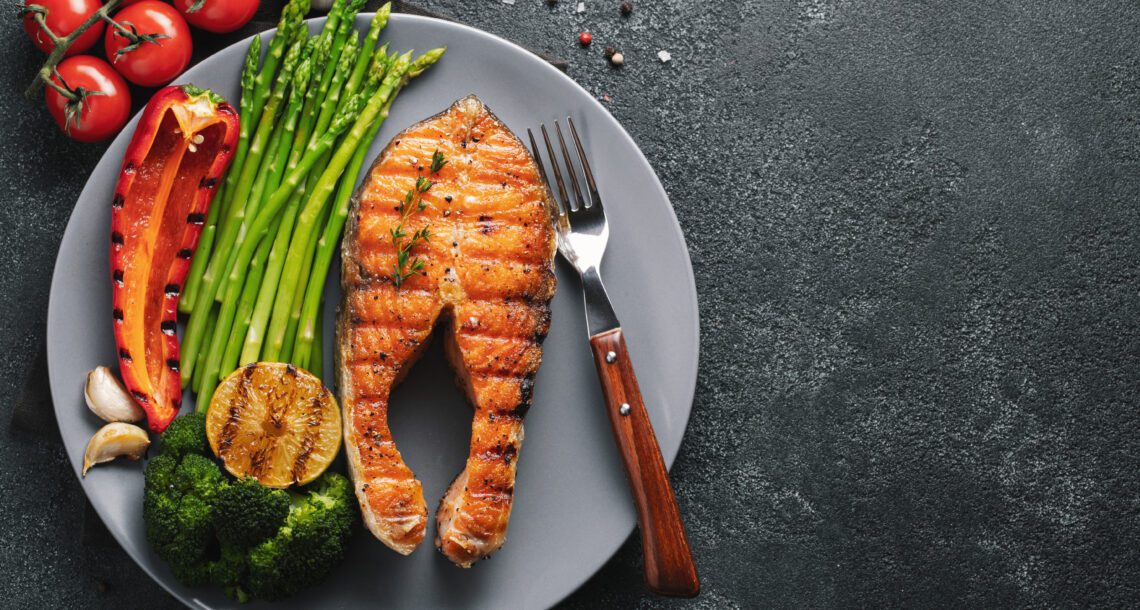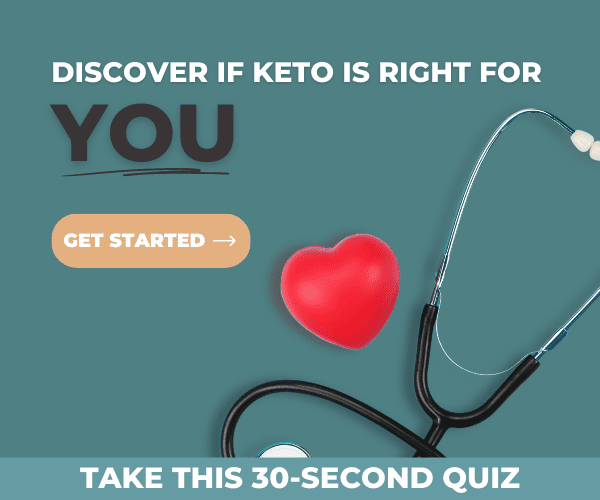What Is Keto? 10 Popular Keto Questions, Answered

If you’re thinking about embarking on the ketogenic lifestyle but you’re not sure where to start, the following 10 questions, answered will help put you on the right track. You probably know what keto is—the metabolic state of ketosis where one burns fat (instead of carbs) for energy—but you may be unsure of the nuances that lead to achieving and maintaining it.
Here are 10 popular keto questions and answers that will help you get familiar (and get results!) with the protocol.
What can I eat on my keto plan?
You can eat low-carbohydrate vegetables, extremely low-sugar fruits, seafood, meat, poultry, eggs, cheese, plain yogurt (dairy and non-dairy), cream, butter, ghee, nuts, seeds, oils, dark chocolate, and keto-approved condiments such as mayonnaise, dressings, and sauces.
You cannot consume bread, cereal, pasta, rice, crackers, potatoes, dairy with sugar, moderate- or high- carbohydrate fruits and vegetables, starches, sugary foods, soda, fruit juice, and typical dessert foods.
What are macronutrients and why are they important?
Fats, carbohydrates, and proteins are the three macronutrients found in the diet.
For ketosis, fat intake should be around 70-80% of total calories, carbohydrate intake should be between 5-10% of total calories, and protein should fall within the range of 10-20% of total calories.
How many grams of carbs should I have per day?
This is a tricky question since we are all physiologically different–carbohydrate amounts will vary from person to person. Generally speaking, you should stick to no more than 50 grams of total carbohydrates per day, or no more than 25 grams of net carbohydrates per day.
Net carbohydrates are calculated by subtracting fiber and sugar alcohols from total carbohydrates—the reason for this calculation is because fiber and sugar alcohols do not absorb so therefore, they are not counted in total carbohydrate intake.
How do I track my carbohydrates, fats, and proteins?
There are various online macro tracking apps that are simple to use–one of the most popular ones in the keto community is called Carb Manager.
If you’re worried about this being too much work, it will only last two to three weeks before are naturally accustomed to knowing what foods have the proper amount of carbohydrates, fats, and proteins for your nutrition plan.
Although this process may seem daunting in the beginning, it gets extremely easy and then before you know it, you won’t need to track any longer as you will know what is in most foods.
Do I need to track my calories?
People of different heights, weights, ages, activity levels, and goals all have assorted calorie requirements. When it comes to weight loss, calories in versus calories expended will always matter to some degree.
Even if you hit your macro requirements in perfect ranges, you could still fail to lose weight (or you could gain weight) if you eat too many calories. Online tools are available that can help you determine how many calories you should consume to maintain or lose weight.

Will the keto diet make my cholesterol worse?
One of the primary guidelines to follow for a healthy ketogenic lifestyle is to choose the healthiest fats.
Fats found in foods such as avocado, extra-virgin olive oil, nuts, seeds, and wild salmon help to promote good cholesterol. If one focuses on unhealthy fats such as inferior oils and processed meats, then it is possible that negative outcomes such as increased bad cholesterol and excessive sodium levels could occur.
There are several studies which show that the ketogenic nutrition plan is associated with improvements in good cholesterol, cardiovascular risk, and type II diabetes. [1]
Will I get enough fiber and micronutrients?
If your five to 10 percent allotted carbohydrates are dedicated to mostly green vegetables and low-sugar fruits, you can get adequate fiber, vitamin, and mineral intake. The average American only consumes 10 to 15 grams of fiber per day so if you plan correctly, you can double the amount of fiber that the average person gets if you watch what you eat.
For example, one cup of cooked spinach, two cups of chopped Romaine lettuce, two cups of cooked broccoli, and 1/2 cup of raspberries gives you a whopping 24 grams of fiber, which calculates to only 22 grams of net carbohydrates.
Not to mention, the consumption of this many servings of low-sugar produce will give a a substantial amount of essential vitamins, minerals, and antioxidants.
Do I have to buy organic produce, grass-fed meats and butter, and wild fish to do keto?

No, you do not. We recommend these options since they help to limit pesticides and environmental toxins, however, sometimes they are not readily available and they can be expensive.
You can still adhere to your keto plan even if you choose conventional versions of these foods.
Do I have to measure ketones to make sure I’m in ketosis?
No, you are not required to measure ketones. Some find it helpful, however, a large percentage of keto dieters do not take this extra step.
You may find that you will see dramatic weight loss and blood sugar level improvements just by following the keto nutrition protocol as your sugar and carbohydrate intake will be drastically cut. That, alone, is typically effective enough to see results.
Can I ever eat non-keto food?
The short answer is yes, but this really depends on individual preferences.
In theory, if you were extremely low in carbohydrates all day and then wanted one serving of a non-keto food that was higher in carbohydrates, you could still fall into your daily guideline of carbohydrates. Or if you’re one who isn’t concerned with constantly remaining in ketosis then having a cheat won’t make a huge difference as long as you jump back on the wagon.
On the flip side, if you are in ketosis regularly and that’s important to you, a cheat food can kick you out of ketosis (and possibly make you feel a little sick). Getting back into ketosis could take a few days.
Starting the keto diet
The ketogenic diet can seem daunting and hard to understand but it is, in fact, a straightforward way of eating, once you get the basics down. Hopefully this ‘Q and A’ has cleared up any confusion and rest assured, once you sort out the facts and get into a routine, you’ll find that keto is effortless and certainly worth the results. If we missed a question you would like to ask about keto, feel free to do so in the comments!
References
Kosinski, Christophe, and François R Jornayvaz. Effects of Ketogenic Diets on Cardiovascular Risk Factors: Evidence from Animal and Human Studies. Nutrients. MDPI, May 19, 2017. https://www.ncbi.nlm.nih.gov/pmc/articles/PMC5452247/.










